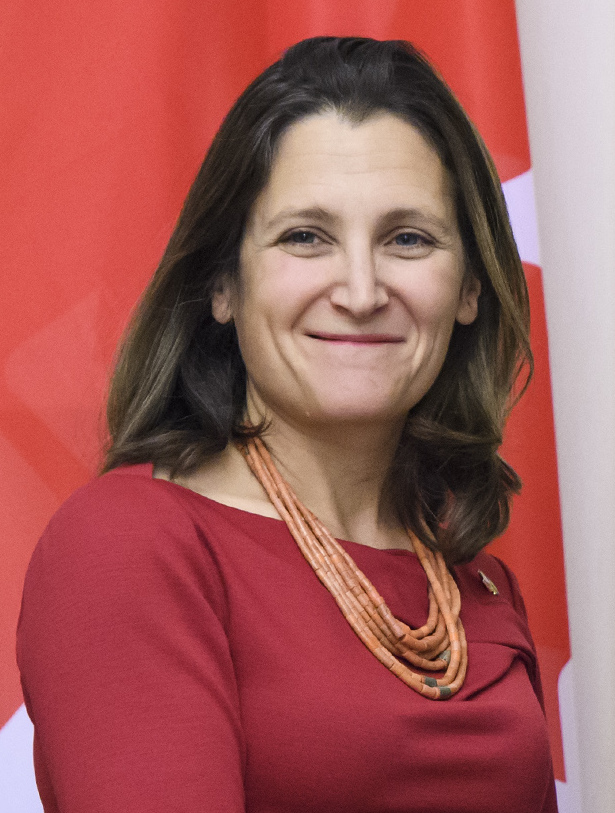 The Federal Finance Minister Chrystia Freeland delivered the country’s first budget in over 2 years.
The Federal Finance Minister Chrystia Freeland delivered the country’s first budget in over 2 years.
They announced up to 30 billion dollars for child care and early learners over the next 5 years.
It is planned as a cost sharing arrangement with Provinces and the Federal Government. They are given as not-for-profit spaces.
The Feds are extended the Wage Subsidy, Rent Subsidy and Lockdown supports through September 25th with a reduction in rates beginning July 4th. The cost of the extension is estimated at 12 billion dollars.
Publicly listed corporations that receive the wage subsidy and paid executives more in 2021 than 2019 will have to replay the equivalent amount back to the government starting in early June.
The Canadian Recovery benefit is being extended 12 weeks to a maximum of 50 weeks. The caregiver benefit is being extended 4 weeks to a maximum of 42 weeks.
Indigenous Services & Reconciliation will see 18 billion in new spending including response to Covid-19, health care improvements, water, social services, education, income assistance, infrastructure improvements, job creation and more.
There will be a digital services tax of 3% proposed on revenue that gloval web giants generate from Canadian content and data.
Non-resident housing tax would be introduced at 1% and would apply to the value of non-resident, non-Canadian owned residential real estate considered to be vacant or under used starting in 2022.
New luxury taxes would apply to luxury cars, aircraft over $100,000 and personal boats above $250,000.
There would be an increase in old age security for those 75 and older; up to $766 in the first year and a 1 time payment of $500 in August. And an additional $3 billion dollars over 5 years to support long term care standards across the provinces and territories.
EI would see reform with nearly $7 billion additional including the extension of sickness benefits form 15 to 26 weeks.
Students would see a waiver of interest on federal student and apprentice loans through 2022-23. They would extend the doubling of Canada Student Grants through July 2023 at a cost of $3.1 billion.
The Canada Workers Benefit would be expanded to about 1 million people in low wage jobs at a cost of $8.9 billion dollars through 2026.
There would be $721 million over 2 years spent for student placement, youth skills, Canada Summer Jobs program. $960 million over 3 years to help sectors with labour shortages and $470 million over 3 years to establish Apprenticeship Services for those entering the Red Seal trades.
The Canada Recovery Hiring Program would continue through November to help employers with extra re-opening costs at an expected cost of $595 million.
The Canadian Digital Adoption Program would provide assistance to 160,000 businesses with digitization, ecommerce, finance and advisory expertise.
Program proposed for Aerospace Sector support for $2 billion.
$1 billion over 3 years for tourism sector
$420 million over 3 years for music, community events and recovery fund for heritage, arts, culture and sports sectors
Housing would see $3.8 billion in new and re-assigned funding over 7 years for affordable housing, Canada Housing Benefit and other initiatives to build, convert or repair 35,000 units.
Green initiatives would see $8.8 billion in spending including a net zero accelerator that supports emission reducing projects, supports clean-tech companies to scale up and compete around the world, ev charging, federal building retrofits.
Investment tax credit for carbon capture, utilization and storage technology plus a 50% tax reduction for businesses that manufacture zero-emission tech. The lit of green tech eligible for writeoffs would also expand.
Issuing of first federal green bond to finance green projects with a target of $5 billion dollars.
Calls for CMHC to provide interest free loans up to $40,000 for home retrofits.
Federal carbon rebate credits would move to quarterly from annual. $100 million in carbon levies to be returned to farmers in backstop provinces (AB, MB, ON and SK)
$612 million over 2 years for homeless strategy (including veterans)
$300 million to find Black-led initiatives to fight racism and support Black-led non-profit organizations.
Expanded funding for victim support, sexual assault service providers, military justice system and new external oversight mechanisms to bring independence to the processes of reporting and adjudicating sexual misconduct.
RCMP to receive $75 million over 5 years to combat systematic racism through recruitment and training reform and other changes.
And $312 million over 5 years for gun control measures and $601 million over 5 years for a national action plan to end gender-based violence.








